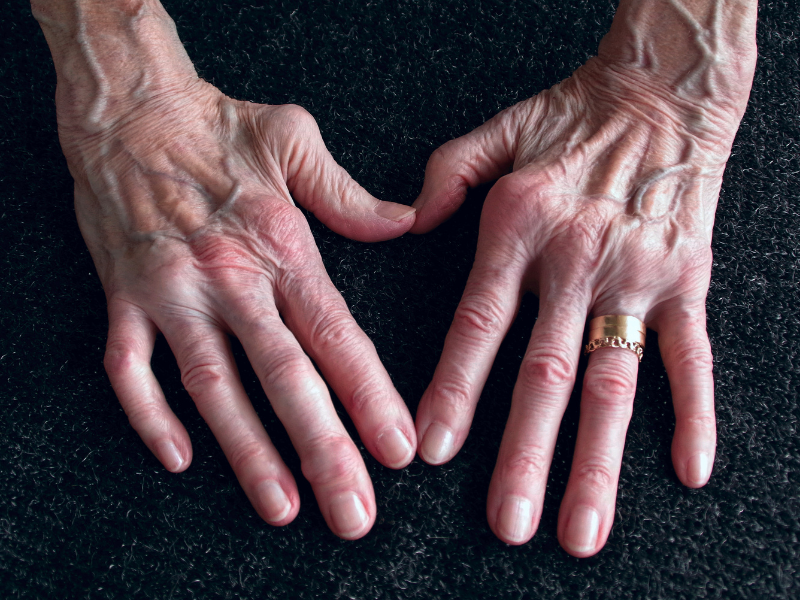Rheumatoid Arthritis

Rheumatoid arthritis is a chronic inflammatory condition that affects more than just the joints. Its precise cause remains unknown. Treatment options includes the use of medication, lifestyle adjustments, physical therapy, nutritional therapy, surgical interventions.
What is Rheumatoid Arthritis?
Rheumatoid arthritis (RA) is an autoimmune and inflammatory disease. In this condition, the immune system mistakenly targets healthy cells. This results in inflammation and severe swelling in certain bodily locations.
RA primarily attacks numerous joints at the same time, with a focus on the hands, wrists, and knees. Inflammation affects the joint lining in affected joints, resulting in:
- long-term or chronic pain
- instability (loss of balance)
- abnormalities
Furthermore, RA can spread its affects to other parts of the body, causing problems in organs such as the lungs, heart, and eyes.
What is the cause of Rheumatoid Arthritis?
When the body’s immune system targets its own healthy cells, RA develops. Although the precise origins of RA are unknown, some variables can raise the likelihood of having the condition.
What are the symptoms of Rheumatoid Arthritis?
Everyone is affected differently by rheumatoid arthritis. Joint symptoms can develop over time in some people. In some patients, RA symptoms worsen quickly. Many persons experience symptoms (flares) followed by periods of no symptoms (remission).
Symptoms may include:
- Pain in the joint
- Stiffness
- Fever
- Swelling
- Weakness
Early rheumatoid arthritis usually affects your smaller joints first, especially the joints that connect your fingers to your hands and your toes to your feet.
Symptoms of the condition frequently expand to the knees, wrists, ankles, elbows, hips, and shoulders as it develops. Symptoms usually appear in the same joints on both sides of your body.
Around 40% of persons with rheumatoid arthritis also have symptoms that do not involve the joints. The following areas may be affected:
- Eyes
- Skin
- Nerve tissue
- Internal organs
- Blood vessels
- Bone marrow
Risk Factors for RA
The following factors may raise your risk of this condition:
- Age. Rheumatoid arthritis can strike at any age, but it is most frequent in middle life.
- Smoking. Smoking increases your risk of getting rheumatoid arthritis, especially if it runs in your family. Smoking also appears to be linked to increased disease severity.
- Your sexuality. Rheumatoid arthritis is more common in women than in men.
- Family history. If someone in your family has rheumatoid arthritis, you may be more susceptible to the disease.
- Extra weight. Overweight people appear to be at a slightly increased risk of having rheumatoid arthritis.
RA Complications
Rheumatoid arthritis (RA) brings various challenges, impacting both physical and social aspects and diminishing overall quality of life. It can lead to pain, disability, and even premature death.
1. Obesity: Obese people with RA are more likely to have heart disease-related diseases such high blood pressure and high cholesterol. Obesity also increases the risk of acquiring chronic diseases, reducing the efficacy of RA treatments.
2. Premature Heart Disease: RA increases the likelihood of developing chronic diseases such as heart disease and diabetes. Managing RA includes:
· addressing risk factors for heart disease
· stopping smoking
· keeping a healthy weight
3. Employment Challenges: RA can make it tough to work, decreasing the likelihood of employment for those with RA compared to those without the condition. As it advances, those with RA often reduce their work capacity.



